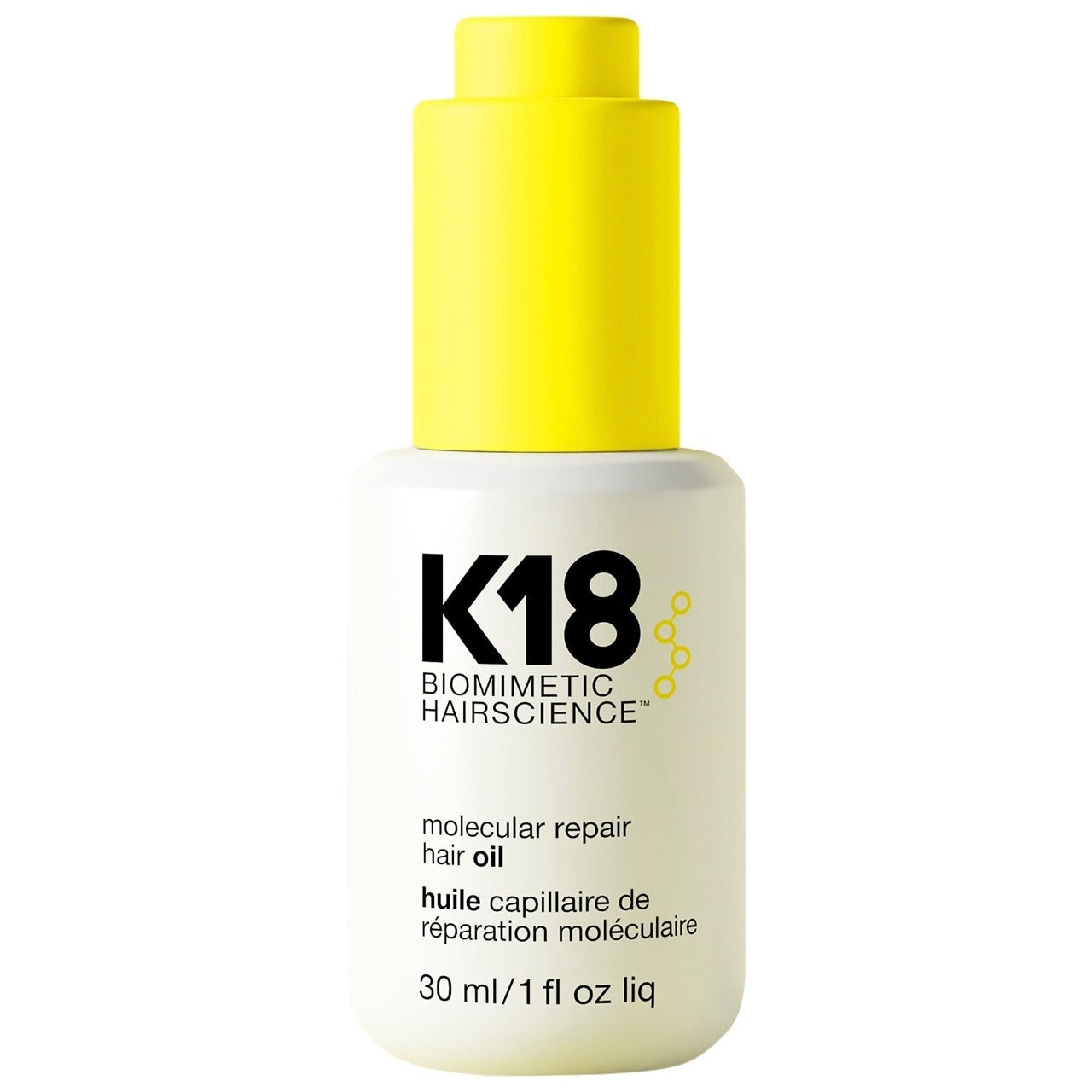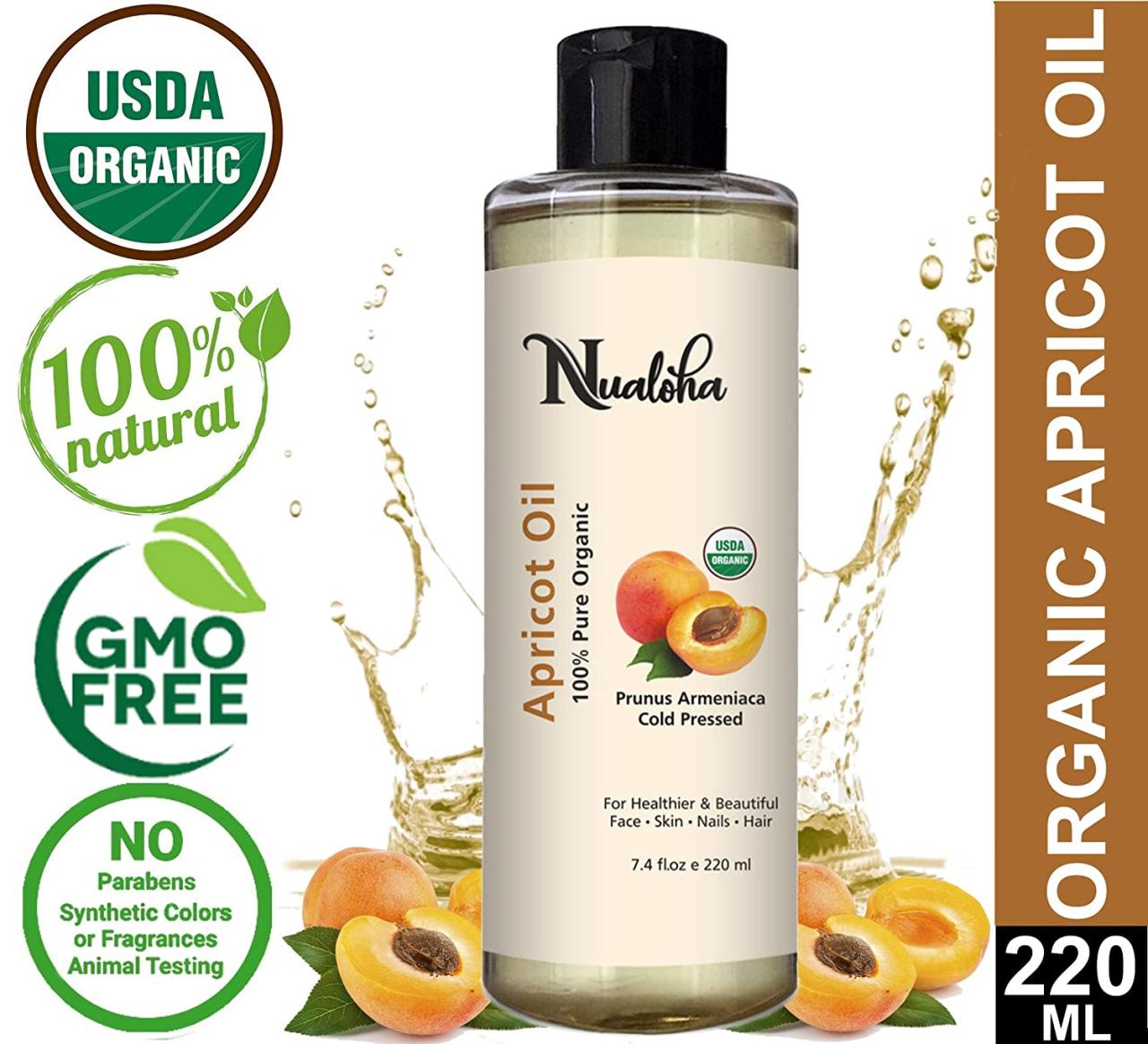Kernel oil for hair offers a natural approach to achieving healthier, more vibrant locks. From moisturizing dry strands to strengthening fragile follicles, various kernel oils like almond and argan offer a range of benefits. This guide delves into the diverse world of kernel oils, exploring their properties, applications, and potential side effects.
This comprehensive resource provides detailed information about different kernel oils, highlighting their unique properties and benefits for various hair types. It also includes comparisons to other hair treatments and essential precautions for safe use.
Introduction to Kernel Oil for Hair

Kernel oils, extracted from the seeds of various plants, are gaining popularity as a natural hair care solution. These oils, known for their rich nutrient content, offer a diverse range of benefits, from deep conditioning to strengthening and promoting healthy hair growth. Their effectiveness stems from the unique fatty acid composition and other beneficial compounds found within.
Kernel oils are broadly used for their moisturizing properties. Their ability to penetrate the hair shaft and hydrate the scalp makes them a valuable tool in maintaining hair health. The varied types of kernel oils offer different compositions and benefits, tailoring their use to specific hair needs.
Types of Kernel Oils
A wide range of kernel oils are commonly used in hair care, each possessing distinct properties. These oils, derived from different plants, offer unique benefits to hair health.
Common Kernel Oils and Their Properties
| Oil Type | Description | Benefits | Suitable Hair Types |
|---|---|---|---|
| Almond Oil | Derived from almonds, this oil is known for its light texture and easily absorbed nature. | Excellent moisturizer, promotes hair growth, strengthens hair shafts. Reduces frizz and helps detangle. | Suitable for all hair types, especially dry and damaged hair. |
| Argan Oil | Extracted from the argan nut, this oil is rich in vitamin E and fatty acids. | Deeply moisturizes and conditions, strengthens hair, protects against heat damage. Known for its ability to reduce breakage. | Ideal for dry, brittle, and color-treated hair. |
| Jojoba Oil | Derived from the jojoba plant, this oil boasts a similar molecular structure to sebum, the natural oil produced by the scalp. | Excellent for balancing scalp oil production, softening and moisturizing hair. Helps control frizz and promote shine. | Suitable for oily, dry, and normal hair types. |
| Coconut Oil | Derived from coconuts, this oil is a popular choice for its thick, creamy texture and nourishing properties. | Deeply moisturizes, strengthens hair, and helps prevent breakage. Excellent for detangling. | Suitable for all hair types, especially dry and damaged hair. |
General Benefits of Kernel Oils
The benefits of kernel oils for hair extend beyond simple moisturizing. These oils provide a variety of benefits that contribute to overall hair health. They can significantly improve hair texture and appearance, and can aid in preventing damage.
Benefits of Kernel Oils for Hair Health
Kernel oils, derived from various nuts and seeds, are increasingly recognized for their potential to enhance hair health. Their rich composition of vitamins, fatty acids, and antioxidants can contribute to a healthier scalp and stronger, more vibrant hair. This section explores the diverse benefits these oils offer, from moisturizing dry hair to strengthening follicles and promoting overall hair health.
Moisturizing Properties and Impact on Hair Dryness
Kernel oils, particularly those high in fatty acids like omega-6 and omega-9, effectively hydrate and moisturize dry hair. These oils penetrate the hair shaft, filling in moisture gaps and preventing moisture loss. This sustained hydration leads to a noticeable reduction in dryness, resulting in smoother, softer, and more manageable hair. The moisturizing effect is particularly beneficial for individuals with naturally dry hair or those experiencing dryness due to environmental factors or hair styling routines.
Strengthening Hair Follicles and Preventing Breakage
Kernel oils, rich in proteins and essential fatty acids, can contribute to strengthening hair follicles. By nourishing the follicles and surrounding tissues, these oils potentially reduce hair breakage and promote stronger, more resilient hair. Stronger follicles are less prone to damage from daily wear and tear, resulting in less breakage and split ends. This ultimately leads to healthier, fuller hair growth.
Promoting Hair Growth and Reducing Hair Loss
Kernel oils can stimulate hair growth by nourishing the hair follicles and improving blood circulation to the scalp. Improved blood flow can provide essential nutrients to the follicles, promoting hair growth and potentially reducing hair loss. Some kernel oils, due to their anti-inflammatory properties, may also address underlying scalp issues that contribute to hair loss.
Anti-inflammatory Effects and Impact on Scalp Conditions
Certain kernel oils possess anti-inflammatory properties, making them potentially beneficial for individuals with scalp conditions like dandruff or psoriasis. These oils can soothe inflammation and reduce irritation, leading to a healthier scalp environment conducive to hair growth. By reducing inflammation, these oils may contribute to a more balanced and healthy scalp, fostering better hair growth.
Specific Benefits and Scientific Evidence
| Benefit | Description | Supporting Research (if available) |
|---|---|---|
| Moisturizing | Kernel oils effectively hydrate hair, filling in moisture gaps and reducing dryness, leading to smoother, softer hair. | Limited specific research on moisturizing effects. Observational studies and anecdotal evidence suggest the positive impact of fatty acid-rich oils on hair hydration. |
| Strengthening | Kernel oils nourish hair follicles and surrounding tissues, contributing to stronger, more resilient hair, reducing breakage and split ends. | Limited direct studies. The presence of proteins and fatty acids in the oils suggests a potential for strengthening effects. |
| Promoting Growth/Reducing Loss | Kernel oils can stimulate hair growth by improving blood circulation and providing essential nutrients to the hair follicles. They may also address underlying scalp issues that contribute to hair loss. | Limited research focusing specifically on hair growth. Some studies on the impact of essential fatty acids on hair growth show promising results. |
| Anti-inflammatory | Certain kernel oils possess anti-inflammatory properties, potentially beneficial for scalp conditions like dandruff or psoriasis, reducing inflammation and irritation. | Limited specific research. Anecdotal reports and some studies on the anti-inflammatory properties of certain oils suggest their potential use in managing scalp conditions. |
Kernel Oil Applications for Different Hair Types
Kernel oils, prized for their nourishing properties, can significantly benefit various hair types. Their versatility extends beyond simply moisturizing; they can address specific concerns like dryness, oiliness, and color damage. Understanding the nuances of different hair types and tailoring application methods is key to unlocking the full potential of kernel oils in your hair care routine.
Effective application strategies for kernel oils hinge on recognizing the unique characteristics of each hair type. Oily hair, for instance, may benefit from a lighter application, while dry hair requires a more concentrated approach. The frequency of application will also vary depending on the individual’s hair type and desired results.
Oily Hair
Oily hair often requires a delicate touch. Excessive oil production can lead to a greasy or limp appearance. Applying kernel oil to oily hair should be done sparingly and strategically. A small amount of oil, preferably warmed slightly, can be gently massaged into the scalp and roots. Avoid applying to the ends, as this could exacerbate the oiliness.
A crucial element of a routine for oily hair is minimizing the frequency of application. Once or twice a week is often sufficient, allowing the scalp to breathe and regulate its natural oil production. A deep conditioning treatment with kernel oil, using a hair mask, can be incorporated every 2-3 weeks to moisturize without overloading the scalp.
Dry Hair
Dry hair often lacks moisture, leading to dryness, breakage, and a lack of shine. Kernel oils are ideal for replenishing moisture in dry hair. A generous amount of kernel oil should be applied throughout the lengths of the hair, from the roots to the ends. The warmth of the oil helps to penetrate the hair shaft more effectively.
A deep conditioning treatment incorporating kernel oil can be performed weekly, providing an intense moisturizing boost. Regular use of kernel oil for dry hair will help improve its overall health and resilience.
Color-Treated Hair
Color-treated hair is often prone to damage and dryness due to the chemical processes involved in coloring. Kernel oils can help replenish moisture and repair damage to color-treated hair. Apply a small amount of warm kernel oil to the ends of the hair, focusing on areas that have been most affected by color treatments.
Incorporating kernel oil into a color-treated hair routine can significantly reduce the negative impact of color treatments on the hair’s structure. A weekly deep conditioning treatment with kernel oil is recommended to maintain the hair’s health and vibrancy. The antioxidants in kernel oil may also help to neutralize free radicals and further protect the color.
Application Summary
| Hair Type | Application Method | Frequency |
|---|---|---|
| Dry Hair | Apply a generous amount to the entire hair length, from roots to ends. | Weekly or bi-weekly, depending on the hair’s dryness level. |
| Oily Hair | Apply a small amount to the scalp and roots only. | Once or twice a week. |
| Color-Treated Hair | Focus application on the ends of the hair, particularly those areas most affected by coloring. | Weekly deep conditioning treatment. |
Potential Side Effects and Precautions
Kernel oils, while generally safe for hair care, can present potential side effects, particularly for individuals with sensitive skin or pre-existing conditions. Understanding these potential risks and taking necessary precautions is crucial for ensuring a positive and safe experience. Care must be taken to avoid adverse reactions and maximize the benefits of kernel oils.
A thorough understanding of potential side effects and the implementation of proper precautions are paramount when incorporating kernel oils into one’s hair care routine. This involves recognizing potential allergic reactions, understanding potential interactions with other products, and implementing safety measures, especially for those with sensitive scalps or skin.
Allergic Reactions and Skin Irritations, Kernel oil for hair
Kernel oils, like many natural ingredients, can trigger allergic reactions or skin irritations in susceptible individuals. Symptoms may range from mild redness and itching to more severe reactions like hives or swelling. A thorough understanding of the potential for allergic reactions is essential.
Interactions with Other Hair Care Products
Kernel oils can interact with other hair care products, potentially altering their effectiveness or causing unexpected reactions. For example, certain oils might affect the absorption or efficacy of other treatments. Careful consideration of product compatibility is important.
Precautions for Sensitive Scalps or Skin
Individuals with sensitive scalps or skin should exercise extra caution when using kernel oils. A patch test is crucial to assess individual tolerance before full-scale application. Applying a small amount to a discreet area and monitoring for any reaction for 24-48 hours is a standard precaution.
Determining Kernel Oil Allergies
Identifying a kernel oil allergy involves observing symptoms after application. If a person experiences itching, redness, swelling, or hives after using a kernel oil product, they should immediately discontinue use and consult a dermatologist or allergist. A detailed analysis of symptoms and a consultation with a healthcare professional are recommended.
Precautions When Using Kernel Oils
Proper application techniques and careful monitoring are crucial for safe and effective use.
- Patch Test Before Application: A small amount of the kernel oil should be applied to a discreet area of the skin, such as the inner wrist, before applying to the entire scalp. Monitoring for any reaction over 24-48 hours is essential to identify potential sensitivities. This precautionary step is vital to avoid unwanted reactions.
- Avoid Excessive Amounts: Using excessive amounts of kernel oil may increase the risk of irritation or adverse reactions. Following the recommended usage instructions is critical to avoid potential issues. The application should be targeted to the specific needs of the hair type.
- Discontinue Use if Irritation Occurs: If any irritation, redness, itching, or other adverse reactions occur, discontinue use immediately. Consulting a healthcare professional for appropriate treatment is advised. Early intervention is crucial to prevent the worsening of symptoms.
Kernel Oil vs. Other Hair Treatments: Kernel Oil For Hair

Kernel oils, with their diverse range of nutrients, are increasingly popular as a natural hair treatment. However, their effectiveness often comes into question when compared to other, more established hair care products like serums, conditioners, and masks. This comparison delves into the nuances of each approach, considering ingredients, benefits, and potential drawbacks. Understanding these differences can help consumers make informed decisions about their hair care routines.
A comprehensive analysis of kernel oils against other hair treatments reveals a nuanced picture. While kernel oils excel in providing deep conditioning and moisture, their application and results might differ from the targeted approach of specialized serums or masks. The specific benefits and drawbacks depend heavily on the individual’s hair type and desired outcome.
Comparative Analysis of Ingredients and Benefits
Kernel oils, rich in vitamins, antioxidants, and fatty acids, offer deep conditioning and moisture retention. They are often lauded for their ability to strengthen hair follicles and promote hair growth. Conversely, serums often focus on targeted treatments like frizz control, shine enhancement, or specific damage repair, relying on specialized ingredients like proteins, silicones, or humectants. Conditioners, typically formulated for smoother and more manageable hair, often contain emollients and humectants to lock in moisture. Hair masks, usually applied for intensive treatment, are formulated with potent ingredients for deeply penetrating hydration and repair. The choice of treatment depends on the specific hair needs.
Kernel Oils and Other Hair Treatments in Combination
Combining kernel oils with other hair care products can offer synergistic benefits. For instance, using a kernel oil as a pre-shampoo treatment to deeply moisturize and condition hair, followed by a serum for targeted frizz control, can yield better results than using either product alone. This approach allows for a more comprehensive hair care routine tailored to individual needs. The application of kernel oil can be enhanced with a serum to target specific concerns, or combined with a conditioner for enhanced moisture retention.
Table Comparing Kernel Oils, Serums, Conditioners, and Masks
| Treatment | Benefits | Drawbacks |
|---|---|---|
| Kernel Oil | Deep conditioning, moisture retention, potentially promoting hair growth, often natural and low cost. Can improve elasticity and manageability. | May take longer to see results compared to targeted treatments, can be less effective for immediate frizz control or shine enhancement. Application may require more time. |
| Serum | Targeted treatment for specific issues like frizz, damage, or dryness. Often delivers quick results. Offers a concentrated dose of active ingredients. | Can be expensive. May not provide the same level of deep conditioning as kernel oils. Ingredients might not be suitable for all hair types. |
| Conditioner | Designed to smooth and manage hair, improve detangling, and add shine. Suitable for most hair types. | Can weigh down fine hair, may not address specific concerns like damage or dryness as effectively as a targeted treatment. |
| Hair Mask | Provides intensive treatment and deep hydration, excellent for repairing damaged hair, suitable for dry and brittle hair. | Can be time-consuming, might not be as convenient for daily use. Some masks may contain harsh ingredients that might irritate the scalp. |
How to Choose the Right Kernel Oil

Navigating the plethora of kernel oils available for hair care can be daunting. Understanding the nuances of quality, ingredients, and brand reputation is crucial to maximizing the benefits and avoiding potential pitfalls. This section details key factors for selecting the right kernel oil for your specific hair needs.
High-quality kernel oil products are often crafted with meticulous attention to detail, starting with the sourcing of the raw ingredients. This includes ensuring the kernels are harvested at optimal ripeness, minimizing processing, and employing refined extraction methods. These factors directly impact the oil’s potency, purity, and overall efficacy.
Identifying High-Quality Kernel Oil Products
Several key indicators can help discern high-quality kernel oil products. Look for oils with a clear, natural color, free from sediment or unusual cloudiness. A strong, characteristic aroma is typical for many kernel oils. Be wary of overly strong or artificial scents, as these could signal added chemicals. A reputable brand or supplier often reflects rigorous testing and quality control procedures.
Important Factors When Purchasing Kernel Oil
Several factors are crucial when selecting kernel oil for hair care. First, consider your hair type and specific needs. Oily hair might benefit from a lighter, less moisturizing oil, while dry hair might require a more intensive moisturizing formula. Secondly, check the product’s ingredient list. Ensure the oil is pure, with no added fragrances or potentially harmful chemicals. Finally, evaluate the brand’s reputation and the sourcing of the kernel oil.
Reputable Brands and Sources
Choosing a reputable brand or source can significantly enhance the likelihood of receiving a high-quality product. Many reputable brands employ transparent sourcing practices, providing information on where the kernels are harvested and the methods used for extraction. Conducting online research and reading customer reviews can offer insights into the experiences of others. This approach can offer valuable insights into the effectiveness and consistency of different brands and suppliers.
- Artisan producers often prioritize quality and transparency, offering a more direct link to the source of the ingredients.
- Established cosmetic brands may offer a wider range of kernel oil products, often backed by extensive research and development.
- Specialized retailers focusing on natural or organic products often curate selections of high-quality kernel oils, alongside other natural ingredients.
Understanding Product Labels
Thoroughly reading product labels is vital for informed purchasing decisions. Look for clear labeling that details the type of kernel oil, the extraction method, and the presence of any added ingredients. Understanding the extraction process, whether cold-pressed or chemically extracted, can affect the oil’s quality and nutritional value. This information will help determine whether the oil aligns with your hair care goals. Additionally, verifying the presence of any added ingredients and their potential impact on hair health is crucial.
Kernel oil for hair is gaining popularity for its moisturizing properties. Derived from the palm fruit, this oil is a key component of many hair care products. A crucial part of the palm product supply chain, palm product extraction processes often involve kernel oil as a byproduct, contributing to the cost-effectiveness of this sought-after hair treatment.
The oil’s rich composition makes it a popular choice for nourishing and strengthening hair.






